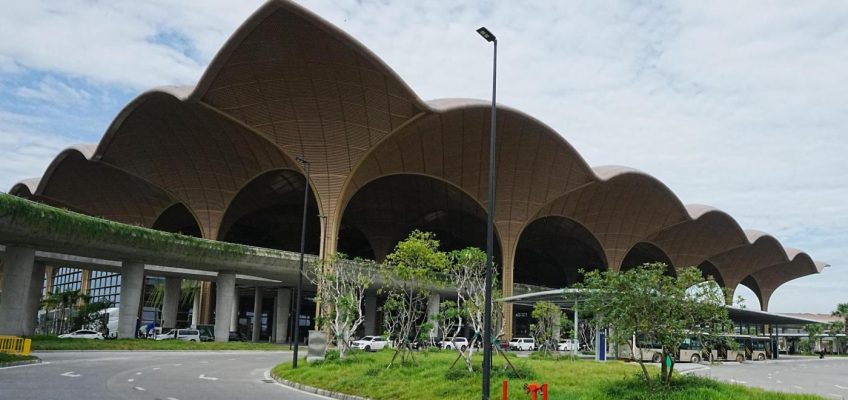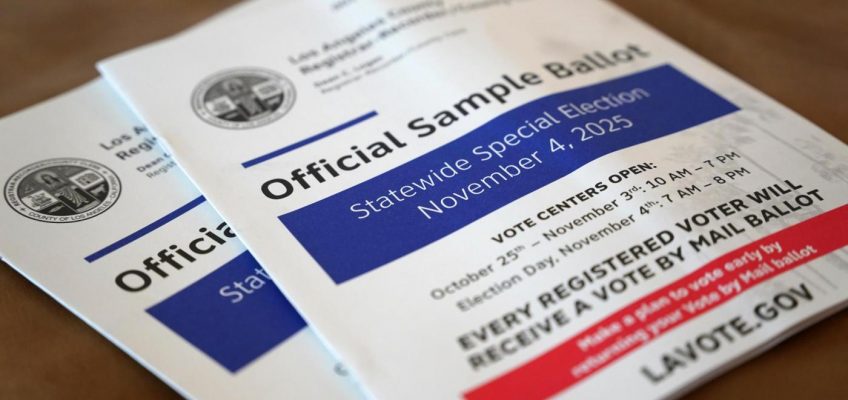By JILL COLVIN and MICHAEL R. BLOOD, Associated Press
LOS ANGELES (AP) — The Department of Justice is preparing to send federal election observers to California and New Jersey next month, targeting two Democratic states holding off-year elections following requests from state Republican parties.
Ontario premier doesn’t back down against Trump, posts video of Reagan opposing tariffs
National Guard deployments in Washington, DC, and Portland, Oregon, are focus of court hearings
New York Attorney General Letitia James will make first court appearance in mortgage fraud case
Trump says he’s ending trade talks with Canada over TV ads
Virginia Democrats will try to reshape US House districts in counter to Trump’s redistricting push
The DOJ will announce Friday that it is planning to monitor polling sites in Passaic County, New Jersey, and five counties in southern and central California: Los Angeles, Orange, Kern, Riverside and Fresno. The goal, according to the DOJ, is “to ensure transparency, ballot security, and compliance with federal law.”
“Transparency at the polls translates into faith in the electoral process, and this Department of Justice is committed to upholding the highest standards of election integrity,” Attorney General Pamela Bondi said in a statement to The Associated Press.
Election monitoring is a routine function of the Justice Department, but the focus on California and New Jersey comes as both states are set to hold closely-watched elections with national consequences on Nov. 4. New Jersey has an open seat for governor that has attracted major spending by both parties and California is holding a special election aimed at redrawing the state’s congressional map to counter Republican gerrymandering efforts elsewhere ahead of the 2026 midterms.
The DOJ’s efforts are also the latest salvo in the GOP’s preoccupation with election integrity after President Donald Trump spent years refusing to accept the results of the 2020 election and falsely railing against mail-in voting as rife with fraud. Democrats fear the new administration will attempt to gain an upper hand in next year’s midterms with similarly unfounded allegations of fraud.
The announcement comes days after state Republican parties in both states wrote letters to the DOJ requesting their assistance.
California’s House districts at stake
The letter from the California GOP, sent Monday and obtained by the AP, asked Harmeet Dhillon, who leads the DOJ’s Civil Rights Division, to provide monitors to observe the election in the five counties.
“In recent elections, we have received reports of irregularities in these counties that we fear will undermine either the willingness of voters to participate in the election or their confidence in the announced results of the election,” wrote GOP Chairwoman Corrin Rankin.
FILE – California Gov. Gavin Newsom speaks during a news conference Thursday, Aug. 14, 2025, in Los Angeles. (AP Photo/Marcio Jose Sanchez, File)
The state is set to vote Nov. 4 on a redistricting proposition that would dramatically redraw California’s congressional lines to add as many as five additional Democratic seats to its U.S. House delegation.
Each of the counties named, they alleged, has experienced recent voting issues, such as sending incorrect or duplicate ballots to voters. They also take issue with how Los Angeles and Orange counties maintain their voter rolls.
California is one of at least eight states the Justice Department has sued as part of a wide-ranging request for detailed voter roll information involving at least half the states. The department has not said why it wants the data.
Most Californians vote using mail ballots returned through the postal service, drop boxes or at local voting centers, which typically leaves polling places relatively quiet on Election Day. But in pursuit of accuracy and counting every vote, the nation’s most populous state has gained a reputation for tallies that can drag on for weeks — and sometimes longer.
In 2024, it took until early December to declare Democrat Adam Gray the winner in his Central Valley district, the final congressional race to be decided in the nation last year.
Trump has long had a tortured relationship with heavily Democratic California, where a Republican has not carried the state in a presidential election since 1988.
Passaic County the target in New Jersey
California’s request echoed a similar letter sent by New Jersey Republicans asking the DOJ to dispatch election monitors to “oversee the receipt and processing of vote-by-mail ballots” and “monitor access to the Board of Elections around the clock” in suburban Passaic County ahead of the state’s governor’s race.
Republican Jack Ciattarelli, left, and Democrat Mikie Sherrill participate in the final debate in the New Jersey governor’s race, Wednesday, Oct. 8, 2025, in New Brunswick, N.J. (AP Photo/Heather Khalifa)
The New Jersey Republican State Committee told Dhillon that federal intervention was necessary to ensure an accurate vote count in the heavily Latino county that was once a Democratic stronghold, but shifted to President Donald Trump’s column in last year’s presidential race.
The county could be critical to GOP gubernatorial nominee Jack Ciattarelli’s hopes against Democrat Mikie Sherrill. But the letter cited previous voter fraud cases in the county and alleged a “long and sordid history” of vote-by-mail shenanigans.
In 2020, a judge ordered a new election for a city council seat in Paterson — the largest city in Passaic County — after the apparent winner and others were charged with voter fraud.
But Michael Zhadanovsky, a spokesman for New Jersey Attorney General Matt Platkin, a Democrat, said in a statement responding to the letter that it “would be highly inappropriate for the federal government to interfere in this November’s state election.”
He said New Jersey “is committed to ensuring the integrity of our elections” and protecting the right of every eligible voter “to have their vote counted.”
Election observers are nothing new
The DOJ has a long history of sending observers to jurisdictions across the country that have histories of voting rights violations to ensure compliance with federal civil rights laws.
Last year, when the Biden administration was still in power, some Republican-led states said they would not allow federal monitors to access voting locations on Election Day.
Trump has for years railed against mail voting as part of his repeated false claims that former President Joe Biden’s victory in 2020 was rigged. He alleges it is riddled with fraud, even though numerous studies have found no evidence of widespread fraud in U.S. elections.
Earlier this year, Trump pledged to ban vote-by-mail across the country, something he has no power to do under the U.S. Constitution.
The DOJ’s effort will be overseen by Dhillon’s Civil Rights Division, which will deploy personnel in coordination with U.S. attorney’s offices and work closely with state and local officials, the department said
“The Department of Justice will do everything necessary to protect the votes of eligible American citizens, ensuring our elections are safe and secure,” Dhillon said in a statement.
The department also is soliciting further requests for monitoring in other jurisdictions.
David Becker, a former DOJ attorney who has served as an election monitor and trained them, said the work is typically done by department lawyers who are prohibited from interfering at polling places.
But Becker, now executive director of the Center for Election Integrity & Research, said local jurisdictions normally agree to the monitors’ presence.
If the administration tried to send monitors without a clear legal rationale to a place where local officials didn’t want them, “That could result in chaos,” he warned.
All local election offices and polling places already have observers from both political parties to ensure rules are followed. While voter fraud does occur, it is rare and there are numerous safeguards in place to prevent it.
Colvin reported from New York. Associated Press writers Nicholas Riccardi in Denver and Mike Catalini in Trenton, New Jersey, contributed to this report.




